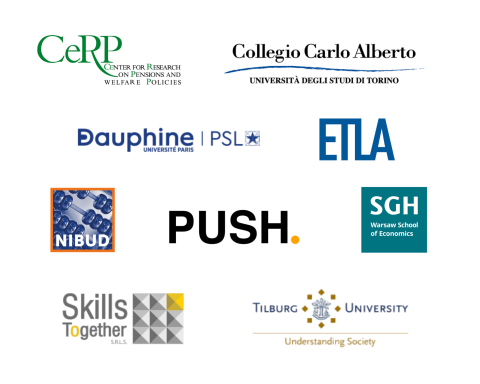A Network Game for Life-cycle Education - ANGLE project
Tilburg University is participating in an international project called ANGLE (A Network Game for Lifecycle Education). The project aims to increase the financial literacy of young people through innovative educational techniques such as online games.
Project
The main objective of the project "A network game for life-cycle education" (ANGLE) is to promote and enhance younger generations’ Economic and Financial Literacy (FL), adopting a life-cycle perspective to help the young to consider a long time horizon and to think about the future consequences of their decisions. Indeed, FL is basic knowledge possibly to be acquired early in life to make individual financial decisions better informed and more effective. FL provides the basic principles for crucial passages in the life cycle, such as the transition from education to work, a more effective individual participation in increasingly dynamic and technologically dominated labor markets as well as re-training/learning processes.
ANGLE focuses on ways in which knowledge can be acquired by using innovative technologies of education, such as games and on-line tools that allow learning through active involvement and participation.
The project is funded by the European Union through the Erasmus+ program (call 2020). The project started in September 2020 and will last three years. Tilburg University closely cooperates with Nibud (National Institute for Family Finance Information), the other Dutch partner in the project.
Project output
The objectives of ANGLE will be pursued by the creation of three outputs:
- A set of booklets available both on-line and on print about life-cycle key aspects and insights drawn from the involvement of students (final users) in the co-design sessions of the game.
Dutch translations of the booklets can be downloaded from the website of the National Institute for Family Finance Information (NIBUD). - A table game designed to allow players to face situations that replicate real life-cycle experiences. Players will a have different endowment (coins), reflecting the diverse paths and the variety of possible family backgrounds, and will be able to earn points by taking wiser choices in a life- cycle perspective, answering to quizzes and giving correct advices to other players (the game is cooperative and collaborative). The basic methodology followed throughout the game will be co-design, involving the end users in the whole process of design, testing, use and improvement of the system.
- A set of learning materials, in an on-line video format, on “saving and indebtedness”, providing the youth with the knowledge and competencies needed to better manage this crucial topic in a life-cycle perspective.
Contribution Tilburg University
Tilburg University is responsible for
- writing two booklets to help young people make decisions about education and retirement (written by Arhur van Soest);
- organizing a focus group with students to evaluate the booklets
- organizing two pilot sessions for the game to be developed (together with students)
Coordinator
CeRP-Collegio Carlo Alberto
Principal Investigator: Elsa Fornero (University of Turin and CeRP-Collegio Carlo Alberto)
Contact Tilburg University
-
prof. dr. Arthur van Soest

Full Professor
TiSEM: Tilburg School of Economics and Management
View full profile
TiSEM: Department of Econometrics and Operations ResearchA.H.O.vanSoest@tilburguniversity.edu Room K 529
Partners

Creditline: Big photo by Brooke Cagle on Unsplash


